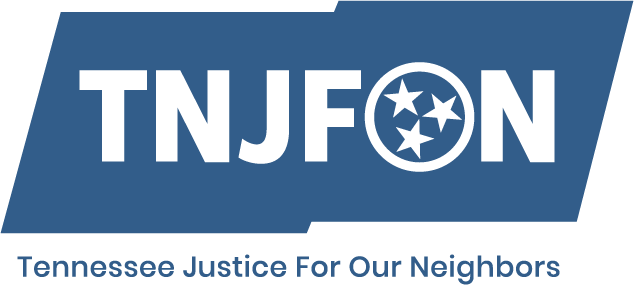"You have to humanize the problem": 3 DACA stories
By: Emily Konouchi
Oye Vecino is the name of TNJFON's Spanish-language podcast focused on issues concerning the immigrant community. But in a special livestream event on September 24 was in English and the audience was primarily non-immigrants. It featured host Alvaro Manrique Barrenechea and 3 young Tennesseans who are currently protected under DACA.
Oye Vecino host Alvaro Manrique Barrenchea
In the panel discussion, we learned about each DACA recipient's story of coming to the US. Selene made the journey at age 14 so she could be with her brother after tragically losing her mother and sister. Cesar came with his parents when he was just 3 and has vague memories of being briefly separated from them. Allie came to the US as a 2 year-old and mostly remembers stories from her parents, including one about being separated from her mom.
“The American dream has 9 numbers.”
No matter when the journey to the U.S. occurred or how clear the first-hand memories are, being undocumented has always been part of their identity. Even before he found out he was undocumented, Cesar knew his dad was careful to avoid any encounter with the police. When Cesar finally learned the details of his status at age 14, he went from being an ambitious student to becoming rebellious, even dropping out of school.
"The American dream has 9 numbers," said Cesar. As a teenager, he was angry to learn that his lack of a Social Security number meant he wouldn't have the same opportunities as his American-born peers, even though he was at the top of his class.
In 2012, DACA turned all that around for Cesar and for the other panelists. Being able to get a Social Security number opened up new opportunities: learning to drive with American-born peers, interning in government, going to nursing school.
“I really don’t think I would have the grit that I do if it wasn’t for that identity and that part of myself.”
However, there were still hurdles. DACA recipients don't qualify for federal aid or in-state tuition for college. Allie, who secured scholarships at a private college, draws on her immigrant experience as a source of strength. "I really don't think I would have the grit that I do if it wasn't for that identity and that part of myself," she said.
For these undocumented young people, DACA also quelled the underlying fear they felt on a daily basis -- the kind of fear Americans have gotten a taste of during this pandemic, when travel outside the country isn't possible, we can't see our family members, and we take a risk just by leaving our homes.
“There’s a reason why DACA happened. Let’s keep showing up.”
DACA created a more even playing field, but with the new restrictions on DACA renewals, the ground now feels shaky.
The uncertainty of DACA's future adds stress and worry to an already difficult time given the pandemic and its effect on the economy. It's harder to feel safe.
But amidst the uncertainty is hope for the future.
"Let's not lose the hope, let's not put our heads down," said Selene. "There's a reason why DACA happened. Let's keep showing up."
Our panelists were gracious to share their stories with us and help us better understand the impact of DACA on their lives.
"When it comes to immigration. You have to humanize the problem," said Cesar.
Now that we have a better understanding, it's time to act. Supporting TNJFON is a great way to help its staff and volunteers serve more people who need high-quality legal services.
“When it comes to immigration. You have to humanize the problem.”


